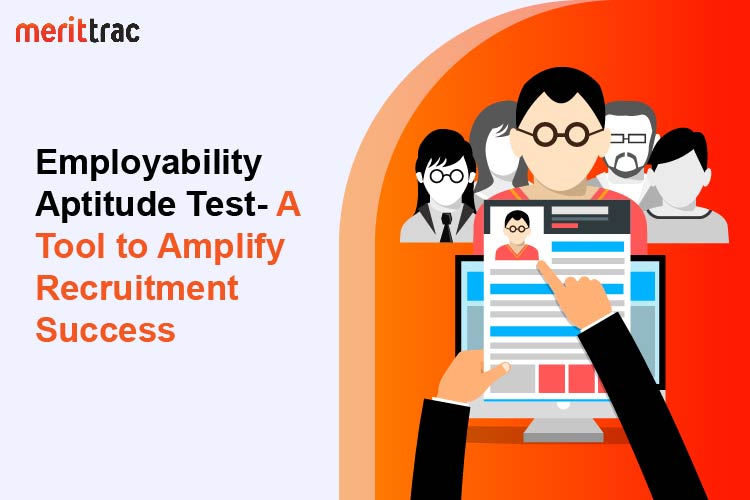
Employability Aptitude Test- A Tool to Amplify Recruitment Success
Date: 10/05/2024 | Category: General
It is no secret that in this fierce market, employers need to find some way to find the most eligible candidate for the job. The employability aptitude test comes as a saviour to assess how driven, skilled, and determined a candidate is to take a job.
After all, a bad fitment not only means loss of performance, but a dent in the organizational culture, and negative returns on investment in human capital.
Why are aptitude tests important?
Aptitude tests check a candidate’s behavioral, reasoning, communication, logical, numerical, and technical skills. Based on the data collected, a candidate’s fitment for a job is assessed. The prediction is made based on data – so it is considered unbiased and accurate.
What makes aptitude testing the best way to find great employees?
Human resources departments can focus on creating the right criteria. Then feed this data into an employability aptitude test system. This system can then assess candidates in an automated fashion, making it a scalable solution for bulk hiring.
Without an automated and data-driven aptitude system, bad hires can accumulate inside an organization. There are multiple consequences to this. Attrition, decline in organizational culture, ethical decline, collaboration decline, and performance decline are some of them.
A person’s ability is based on the way they apply their knowledge and skills to solve problems. If an organization requires a highly innovative candidate then it will have a different requirement than an organization hiring for a candidate who will just do the job. Here, aptitude tests work like a charm for employers. These tests help to hire such candidates easily.

What are the major benefits of aptitude tests?
Interviews could be biased and based on subjective interpretation. An online automated AI-driven employability aptitude test makes use of data. Such data includes the individual being tested, employment history, social profile, credit card history, etc.
Every candidate gets the same type of test. So it creates a standardized way to estimate employability. It is much more effective than leaving the questioning and assessing of a candidate based on an interviewer’s subjective questions.
Imagine the cost incurred setting up interviewers’ time, coordinating personal interactions, and then seeking approval from a variety of stakeholders. Instead of this circuitous path, an online aptitude test is all that is required. It saves time, cost, energy, and unnecessary resource usage.

5 Fundamental Types of Aptitude Tests Used in Employability Assessments
Estimates a candidate’s level of rationality, inference skills, and how much they rely on facts rather than fiction.
Assesses spatial reasoning, pattern recognition, visual communication, and imagination. Helps in determining a person’s creative quotient.
Tests candidate’s level of articulation, conciseness, use of language, and presentation skills.
Helps in understanding knowledge of numerical data, applying statistical knowledge, mathematics fundamentals, and problem-solving ability.
TAssesses versatility, adaptability, presence of mind, willingness for challenges, innate cognitive traits, and several other abilities.
How will MeritTrac’s employability tests help?
For Organizations
MeritTrac’s employability aptitude tests help organizations find the best candidates based on data-driven, AI-enabled, and scientifically designed employability aptitude tests. The assessment technologies of MeritTrac are customizable as per industry, job criteria, demographic, and recruitment urgency.
For Campus Recruitment
Campus recruitment can be more effective with the help of MeritTrac’s digital aptitude tests. It helps in assessing the entry-level capabilities related to job-specific skills, general awareness, and behavioral traits of a candidate.
For Workforce Development
Build a future workforce and unleash employee’s full potential. MeritTrac’s aptitude tests can help them as training needs assessments. Organizations can conduct workforce assessments to gain insights into the employees’ skill gaps.
Conclusion
Employability assessment is a major factor that dictates the fortunes of an organization. Without good employees, the prospects of innovation, change, and progress may never materialize. Organizations that invest in getting the right tools for their human resources not only attract the right talent but stay relevant, innovative and sustainable too.












 Sales Hotline: USA: +1 646 916 0939 / Others: +91 80619 14700
Sales Hotline: USA: +1 646 916 0939 / Others: +91 80619 14700


